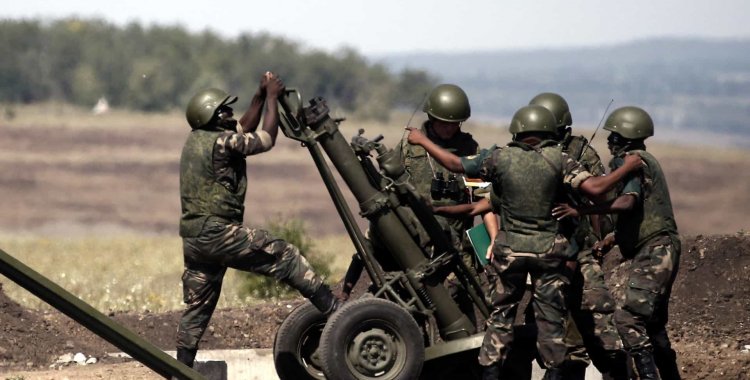"A policy of modernizing the FAA in terms of equipment, training and readiness/maintenance is fundamental", says the group of academics in an analysis to which Lusa had access.
Analysts argue that today "there is an increase in external threats after 2002, not taking on the dramatic contours of the years following independence, but posing demanding challenges to the forces defending sovereignty, territorial integrity and national public order".
After 2002, the year in which the war between government forces, led by the Popular Movement for the Liberation of Angola (MPLA) and the troops of the National Union for the Total Independence of Angola (UNITA) ended, "the threats posed to Angola declined, although many remained dormant and others emerged, such as those linked to state capture and corruption".
The modernization of the FAA "has a qualitative vector, which must be defined by specialists in the area and involves the readiness of the Armed Forces, their deployment capacity and levels of sustainability, as well as the quality of the force they can exert", he says.
However, the group of academics stresses that the report focuses only on "the quantity", presenting a "very simple suggestion already adopted by the countries of the North Atlantic Treaty Organization (NATO), which is to place the expenses with defense in the order of 2 percent of GDP".
"This is not a magic number and can be the subject of much criticism, but it represents an objective and quantifiable parameter, and in fact gives political power a measurable instrument to achieve, which can be an advance in good governance and transparency policies that if they intend to implement in Angola", they say.
However, the General State Budget for 2022, according to Cedesa "still does not fully reflect these needs".
"If we look at it, from 2021 to 2022 there is a nominal increase in defense spending of 19.7 percent", he says. But, "one has only to think that official inflation is around 27 percent in 2021, to realize that in real terms defense spending is decreasing, probably leading to cuts in the military sphere", he underlines, adding that "spending with defense are equivalent to 1.4 percent of GDP".
As for the threats to Angola, Cedesa says that, internally, "we can see the rekindling of separatist attempts, both in Lundas and in Cabinda, [provinces of Angola, the latter being an enclave] that could be a fuse for other initiatives".
Thus, there is "a constitutional duty to combat any attempt at territorial secession" and in addition to this "it is also easy to see that any separation or separation of Cabinda from Angola would have a disintegrating effect on the country, which as we know, historically, is a recent construction and in progress", he underlines.
Then there is a second internal threat, linked to "capturing the state and fighting corruption", the document says.
"The option of the political power was to hand over the fight against corruption to the common judicial means, therefore, this is not a function of the FAA, but of the police forces, criminal investigation and judiciary", he recalls.
"This is a difficult line to draw for the action of the military, so the posture here must be understood as one of surveillance and symbolic support for the activity of the police forces and not of direct intervention", concludes Cedesa.
In addition to internal threats, there are external threats, "various, which have to be listed and have increased in recent years, requiring special attention from the FAA", the report says.
Among the latter, Cedesa highlights the instability in Angola's neighboring countries, namely in the DRCongo, the spread of terrorism, "designated as Islamic", crime and maritime piracy, the increase in competition between world powers with interests in African goods.
In this context, "it is easy to understand that this time is of great demand for the FAA, which can once again be called upon to perform functions of national survival", concludes Cedesa.
Analysts consider, however, that "the Angolan Armed Forces have obsolete and not modernized material, lack of equipment maintenance and unpreparedness of some cadres for specific activities".
"This obviously makes it important to intervene in the FAA in order to increase its budget and increase its operational capacity in the face of challenges", he adds.
Cedesa: modernization of the Armed Forces “is fundamental” in the face of “threats” to the country
Cedesa, an entity that studies Angolan affairs, defended that the modernization of the Angolan Armed Forces "is fundamental", given "an increase in threats" to the country that pose "demanding challenges" to the forces defending the sovereignty of the State.







